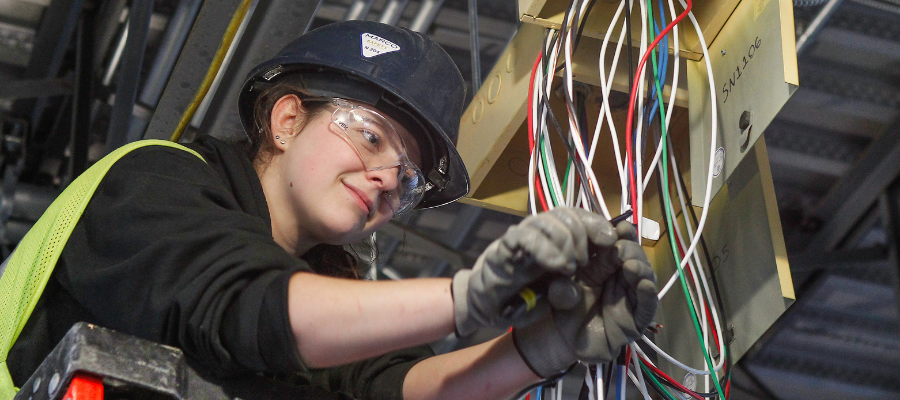Productivity can sound like abstract, technical mumbo-jumbo, but it is in fact critically important to the things that simply make our daily lives better…or worse.
Productivity is not about working harder or longer to produce more. It’s about people creating more value while they’re working, which improves the profitability of firms and provides the basis for wage growth.
At a March Halifax Partnership event, Bank of Canada Senior Deputy Governor Carolyn Rogers sounded the alarm on Canada’s woeful productivity performance and explained why it matters: “An economy with strong productivity can have faster growth, more jobs, and higher wages with less risk of inflation.”
Poor productivity record
Halifax’s real GDP per capita, a commonly used metric for our standard of living, declined by 2.6% from 2022 to 2023 as population growth outpaced GDP growth. Declines did occur in all the nine major Canadian cities the Partnership measures Halifax’s economic performance against, but Halifax’s figure also was among the lowest across benchmark cities.
Provincially, Nova Scotia perennially ranks near the bottom across a wide array of productivity measures.
We don’t fare much better nationally, either. Canada’s long-standing weak productivity performance has been prominent in recent headlines.
In an economy without growth in GDP per capita, for any one individual to enjoy an improved standard of living, it must come at the expense of someone else’s reduction in living standard. This is just a matter of simple arithmetic. To create more wealth for everyone and broadly improve living standards, productivity must improve.
Ten years ago, when the Ivany Report identified our aging and declining population in Nova Scotia as an economic crisis, our province rallied to change course for a better future. We must now recognize poor productivity as a major challenge for us to collectively address.
Productivity boosters
Boosting productivity is a multifaceted endeavour. Here are three examples of ways to improve business performance and economic growth.
1. Build a skilled workforce
One important contributor to productivity is the skill level of the workforce, which to some extent is a function of their education and training.
In Halifax, one-quarter to two-fifths of grade six students did not meet expectations in language and math assessments done last year. There are similar —sometimes worse—results from recent assessments of students in other grades and other parts of the province. A long-term trend line from an international program of student assessment shows declining and below-average results for Nova Scotia in reading, math, and science. We need to better understand these poor results and determine how to turn them around.
Furthermore, existing workers can benefit from training and skills development to become more efficient and productive over their careers.
2. Adopt better tools and technology
Another means to improve productivity is putting more and better tools and technology in workers’ hands.
Last year Nova Scotia’s capital expenditures per capita showed growth of 8.4%, but across provinces, we were dead last in our per capita amount…and our 8.4% growth rate was only fifth-best out of ten.
Some good news comes from the 2024 results of Halifax Partnership’s Business Confidence Survey, carried out by Narrative Research. There is a significant increase in the share of surveyed Halifax businesses saying they plan to utilize cutting edge technology like AI, big data, 3D printing, and smart sensors.
3. Increase competition
Businesses facing strong competition are driven to become more productive through investment and innovation. To paraphrase JFK, ask not what government protections can do for your business, ask what your business can do for your customers.
From a seemingly dire situation in 2014, we all took action to stem the tide of looming population decline and achieved truly impressive results. There is no reason why we—all working together—cannot address and reverse our stagnant productivity performance to ensure rising standards of living and improved well-being into the future.






